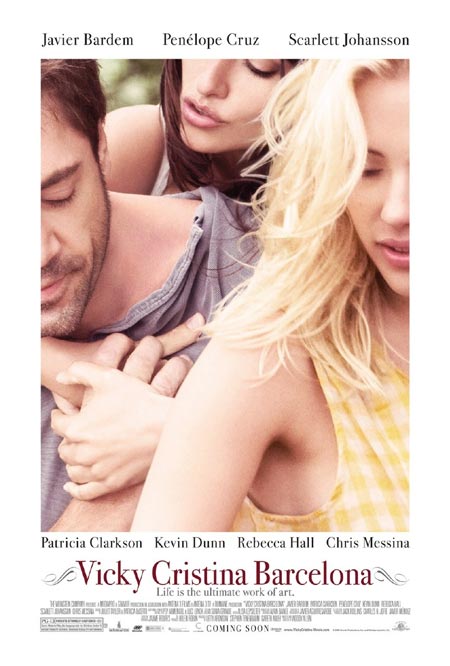Ok, let’s start with the obvious elements that have been dealt with countless times in countless reviews for the latest Woody Allen flick, Whatever Works…
This Film is not Annie Hall, Manhattan or Stardust Memories
Woody Allen has made another film that features an older man who finds himself admired, loved even, by an attractive younger female.
The above points will avoided from here on in, unless crucial for discussing plot.
I make no secret of my love for Allen’s work. It’s been a great source of inspiration in the past but I did prepare myself not to like this film. The main reason, strangely, is that he’s back in Manhattan. Having not made a flick in America since 2004’s largely underwhelming Melinda And Melinda, it was on a knife edge as to whether or not he could breathe life into characters stomping around his home town after 3 staid British efforts and a lush Spanish adventure.
I have to say though, Whatever….. Well, kind of Works…
Larry David plays our caustic protagonist Boris Yellnikoff. I like David’s portrayal of this character way more that I would have had Allen been sprightly enough to take the role. He’s positively loathsome, horrible, intollerant and cruel. Allen could also pull off such traits but often had an element of frailty infusing the performance that led you to let him of the hook. Yellnikoff’s frailty is so saturated in self pity it’s difficult to have any sympathy.
David’s Yellnikoff is the quintesential misanthrope.
An interesting nugget I upturned whilst researching the flick was that the screenplay has been knocking about in a drawer for quite a few decades. The film was to be made with Zero Mostel playing Boris but Allen shelved the project following the great man’s demise. This of course throws any theory of the picture being influenced by his relationship with Soon-Yi-Previn out the window. One has to assume that the central thread of the story always contained this imballance of age.
We are first given concise information regarding Yellnikoff’s makeup. The opening scene is similar in feeling to the opening of Broadway Danny Rose. Yellnikoff and his freinds sit round a Manhattan streetside table trading views of life and mortality. Yellnikoff launches into a tirade about the futility of religion which culminates in him addressing the audience directly. The 4th wall is torn down on more than one occasion in the film and although being a device not completely necesarry for the wellbeing of this picture, it is not used to excess and comes accross as kind of sweet. Yellnikoff isn’t only trying to get through to those around him, he’s involving us directly. Consulting the audience in the desperate hope that we’ll understand him. Think of the cinema queue scene in Annie Hall for an effect reference.
The plot is fairly simple and progresses with pace. (Allen is back in 90 min territory)
A bitter former Nobel Prize nominee who teaches chess (agressively) to kids goes home one night to find a vagrant girl (Evan Rachel Wood) sleeping in the alleyway by his house. He takes her in for a cup of coffee and finds her to be moronic but tollerable. He begrudgingly alows her to stay for a while to get herself sorted out and the girl quickly finds herself attracted to him.
Marriage ensues.
Conflict comes in the form of her mother who, on finding out her daughter is married to someone old enough to be her grandfather, tries to introduce destructive temptation in the form of a younger, handsome, more sensitive suitor. It’s round about this time that the notion of “Whatever Works” (for it’s meant to be taken literally) kicks in.
The central performances of Larry David, Evan Rachel Wood and Patricia Clarkson are very pleasing. Wood in particular plays her character with honesty and seems happy to go with her gut rather than playing a character in a Woody Allen movie. So I guess it all comes down to this….
Woody is reaching the twilight of his career and it could be argued that a film a year is starting to be too much, he’s stretching himself too thin. I would argue against this point. In a world where the most insipid films are given multi million pound budgets only to disappear without trace, I’m happy to pay my money to watch a Woody Allen picture. For although we may feels we’ve seen it all before, or what we’re seeing is a shadow if it’s former glories, there’s still enough good stuff in an Allen picture to justify him making it.
With Woody, you have a body of work rather than an opening weekend.












